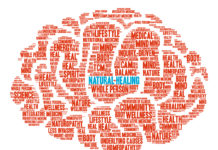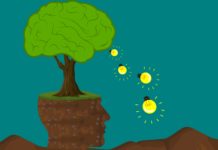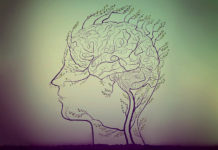New Data on the Adverse Effects of Meditation and Mindfulness
Study reports on the less-examined findings of difficult and painful meditation-related experiences.
Reimagining Healthcare
The conventional Western classification systems of health conditions are based on flawed science shaped by reductionist, hierarchical, and profit-driven ideologies. THEN wants to create a new paradigm built upon principles drawn from systems science, the life course perspective, developmental neurobiology, and other evidence-informed studies.
A Time For Rain: Teaching Our Children About Sadness
The only way out of the epidemic of feeling-people-turned-medicated-psychiatric-patients is to rebrand and reframe feeling as a cultural collective. And I believe it starts with our messaging as parents and our orientation toward shadow elements like anger and sadness. We have to model a conscious relationship to our own dark parts, and we have to show our children what it looks like to move through these spaces. Feelings can be messy, wild, and sometimes ugly to our constrained sensibilities.
Reforming Schools to Prevent Mental Health Issues
New research explores the use of broad-based school-integrated resiliency and mindfulness interventions to prevent mental health concerns before they occur.
What Stops People From Using Exercise to Treat Depression?
New research examines important factors of adherence when prescribing exercise to treat depression.
Yoga Intervention Effective in Reducing Depressive Symptoms
Researchers find that yoga and controlled breathing reduced symptoms in individuals diagnosed with depression.
Similarity of Dissociation and Voice-Hearing in DID and Schizophrenia
A study of 40 patients with schizophrenia diagnoses and 40 patients with dissociative identity disorder (DID) found that "neither phenomenological definitions of dissociation nor...
Long-term Usage of ADHD Drugs Linked to Growth Suppression
Findings suggest that treatment not only fails to reduce the severity of “ADHD” symptoms in adulthood but is associated with decreased height.
Using Breathing-Based Meditation to Treat Depression
Study reveals data suggesting yogic breathing may be helpful in treating depression for patients who have not respond to antidepressants
Psychiatry in Need of “Fundamental Rethinking”
Prominent researchers in psychiatry urge the field to move away from a rigid biological focus toward social and psychological perspectives to meet the needs of today’s world.
Does It Matter if We Believe in Mental Illness?
It's clear that different people relate to the idea of "mental illness" and labeling differently. Many people find the experience of being diagnosed with...
Meditation and Exercise Reduce Depression Symptoms 40%
A combination of exercise and meditation done twice a week over two months may reduce depression symptoms by 40 percent, according to a new study published open-access this month in Translational Psychiatry. Following the eight-week intervention, the student participants that had previously been diagnosed with major depressive disorder (MDD) reported significantly less symptoms and ruminative thoughts and students without any such diagnoses also showed remarkable improvements.
Traditional Healing and Psychosis vs. the Promises of Modern Science
As noted in Anatomy of an Epidemic, the prognosis for someone experiencing psychosis is far better in developing countries than in industrialized countries. Robert Whitaker and others posit that this is due to the treatment models used in the developing world, as well as to debility and chronicity caused by psychiatric drugs themselves. I think it's also important to explore traditional tribal and village based models of helping people experiencing psychosis and examine why they may be effective. Do these traditional societies know something we don't?
Alternatives Beyond Psychiatry
Alternatives Beyond Psychiatry is a "book of alternatives around the world. (Ex-) users and survivors of psychiatry, therapists, psychiatrists, lawyers, social scientists and relatives report...
That Naughty Little Pill
When patients come to me with complaints of low libido, low or flat mood, weight gain, hair loss, and cloudy thinking, one of my first questions is “Are you on the Pill?”. When they come complaining about premenstrual irritability, insomnia, tearfulness, bloating, and breast tenderness, requesting that I sanction beginning a course of oral contraceptives and perhaps an antidepressant, the one-size-fits-all-cure-all of psychiatrists and gynecologists nationwide, my first comment is “There’s a better way.”
Responding to Madness With Loving Receptivity: a Practical Guide
In my last three blogs I posed the question- "If madness isn't what psychiatry says it is, then what is it?" Now I'm asking-...
Large Rigorous Study Debunks Popular Gene-Environment Theory of Depression
A large and rigorous meta-analysis fails to find support for the gene-environment interaction theory of depression.
Minimal Exercise Protects Against Depressive Symptoms in Older Adults
Study of older adults shows those who consistently exercised as little as 15 minutes, 3 times/week are less likely to develop depressive symptoms.
Mindfulness Improves Resiliency to Stress in University Students
New research demonstrates the lasting effects of mindfulness training on stress and wellbeing among university students.
Existential Therapy Assists Patients Withdrawing From Psychiatric Drugs
Confronting existential anxiety through “Basal Exposure Therapy” shows promising results in people withdrawing from psychotropic drugs.
Increasing Physical Activity in Schools May Improve Mental Health
A new article suggests integrating physical activity throughout the day may help to address the mental health of students.
Neurosexism: Study Questions Validity of Gender-based Neuroscientific Results
Neuroscientific results that class humans into two categories, “male” and “female,” tend to reify gender stereotypes by giving them the appearance of objective scientific truth.
Combining Art Therapy and Mindfulness for Refugees
A new article, published in The Arts in Psychotherapy, describes the ways art therapy and mindfulness have benefitted refugees and asylum seekers in Hong Kong.
Healing From Schizophrenia
My experience is that living in a psychosis forces your brain to "stretch" — you develop extra capacity to handle things. I was pretty much living a normal life, even working some of the time, while having all of my psychotic problems. After the psychoses faded away, I no longer needed to fight monsters, but I still had that extra capacity left. After 11 periods of psychosis, my brain has never worked as well as it does now.
Initial Trial of Ayahuasca for Depression Shows Promising Results
Ayahuasca found to be effective in treating moderate to severe depression in low-income population.


























